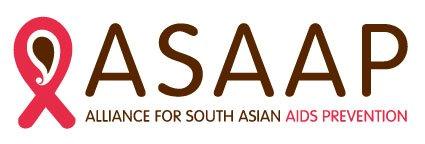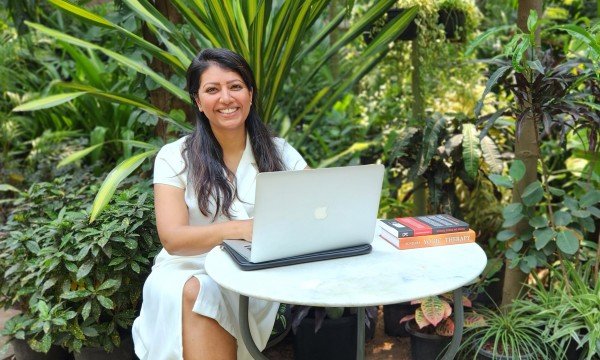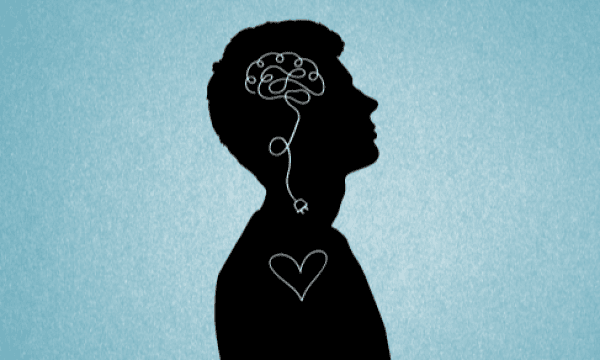
While working as the HIV Prevention Education Coordinator at ASAAP (Alliance for South Asian AIDS Prevention), I’ve received my fair share of criticism for promoting sexual health and safe sex to South Asian people. At an event in late October, I was handing out condoms while speaking to people about HIV when a South Asian lady looked at me with disgust and said, “You should be ashamed.” Ashamed of what I wondered. Ashamed of being concerned about the well-being of my community?
On another occasion, I was outreaching at a health fair where people could come to my table in private. South Asians came up to me, asked about Sexually Transmitted Infections (STIs) and grabbed the condoms as if I was handing out free ladoos. It’s interesting to note that almost all of them were cautious and made sure no one saw them put the condoms in their pockets and purses.
These two experiences make me realize that whether you were born in Canada, brought up here or recently immigrated, sexual health and sexuality are still difficult topics to discuss in our South Asian community. Even with the growing 600 000 South Asian population (including over 200 000 Tamil people) in Toronto alone, things have not changed. So what’s even the point? Why bother talking about it today?
As ASAAP commemorates World AIDS Day, it is the perfect opportunity to educate South Asians on HIV and AIDS. Since 1988, World AIDS Day (December 1st, 2011) has been held every year all around the world. It has become one of the most widely recognized global health days to remember those who have lost their lives to HIV, to stand in solidarity with those affected by the disease, and to raise awareness about HIV and AIDS.
However, talking about HIV and AIDS is impossible without acknowledging sex – the elephant in the room for many South Asians. Most of our parents never gave us the birds and the bees talk and they changed the television channel whenever two people did anything sexual, even if they were just pretending to kiss. No wonder that even as young adults, we are left feeling uncomfortable talking about sexual health and sexuality with our parents and even shockingly, our closest friends.
Prevailing ideas about sex and sexuality geared towards maintaining a strong collective culture of chastity makes these conversations even harder. For example,
• All South Asians are monogamous (hmm, sure they are)
• South Asians are not homosexual or bisexual…(tell this to the thousands who successfully fought to decriminalize same sex activity in Nepal (2008) and in India (2009)
• South Asians are not sexual people, particularly outside marriage (the kama sutra would disagree)
• Sexual Activity is only for the purposes of procreation (again, the kama sutra would disagree)
• HIV/AIDS is a white person’s disease (tell this to the 3.8 million adults and children living with HIV in South Asia UNAIDS World AIDS Day Report 2011)
• HIV/AIDS is a gay person’s disease (not for all the heterosexual women and men living with HIV around the world)
• If you talk about sex and sexuality with South Asians, it will happen. (and if you don’t talk about it, it will still happen – the point is that it can happen safely)
Many continue to believe these misconceptions, but the reality is that South Asians need to know about HIV because just like any other group, sex before marriage does happen, some of our peers do question their sexuality, and people are not always safe with their decision making. And even if we wait till after marriage to have sex, do we know whether our partner has had an STI test? What about in arranged marriages? Will marriage brokers include the sexual history of people while matchmaking and exchanging horoscopes?
The fact is that, there are South Asians living in Toronto with HIV and these cultural stereotypes do not make life easy for them. Nor do they make it easy for people to get information about sexual health, get tested or protect themselves from STIs.
So let’s talk about it now. Let’s get educated and let’s not be afraid to ask questions. To find out more information on sexual health, and to reach support groups for South Asians living with HIV, and support groups for queer South Asian men, contact ASAAP: at (416)599-2727, education@asaap.ca or www.asaap.ca.
And on Thursday, December 1, 2011, join us at World AIDS Day: South Asian Stories from 6:00 PM – 9:00 PM at the William Doo Auditorium (45 Willcocks Street, Toronto). Guest speakers, film screening and light dinner provided. See our website for more details or http://tamilculture.com/2011/11/world-aids-day-south-asian-stories/.
ABOUT ASAAP: The Alliance for South Asian AIDS Prevention
ASAAP serves South Asian populations in the Greater Toronto Area, including its surrounding suburbs and regions. We offer health promotion and support for South Asians living with and affected by HIV and work with diverse communities on prevention education. Our programs and services are delivered in culturally appropriate ways while simultaneously challenging the discomfort many have in talking about sexuality and sexual health.
HIV/AIDS FAQ
What is HIV (Human Immuno-Deficiency Virus)?
HIV is a virus which attacks the immune system, particularly white blood cells called CD4+ T cells that are responsible for fighting off infections in the body.
WHAT is AIDS (Acquired Immuno-Deficiency Syndrome)?
As HIV progressively weakens the immune system, the body becomes more vulnerable to infections that it will have difficulty fighting off. At the point of an advanced HIV infection, a person is said to have AIDS. At this stage opportunistic infections that might not severely affect a person with a well-functioning immune system could be fatal for someone with AIDS. But once diagnosed with AIDS, with proper treatment its status can be downgraded again to HIV.
How is HIV transmitted?
HIV can only be transmitted through certain bodily fluids such as blood, breast milk, and sexual fluids (including semen, pre-seminal fluid, vaginal fluid, and anal secretions). You cannot contract HIV through any other fluids such as saliva, sweat, tears, mucous or bodily waste.
Actions that involve these fluids are considered high risk such as:
* Unprotected sex (without using a condom)
* Sharing injection needles/syringes
* Receiving a blood transfusion in a country where blood may not be screened
* Getting a tattoo or piercing with shared or dirty needles
* Giving birth without treatment and breastfeeding
How is it treated?
Antiretroviral Therapy (ART) is the main type of treatment for HIV. It is not a cure, but it can prevent the weakening of the immune system for years, extending the quality and length of life. ART consists of drugs that have to be taken every day for life, which can have varying side effects.
Written by: Lalitha Bhagavatheeswaran, Prevention Education Coordinator Alliance for South Asian AIDS Prevention (ASAAP - www.asaap.ca)


























